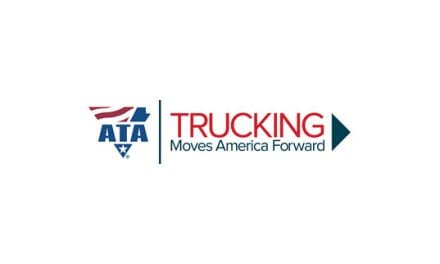By Bernie Kavanagh, WEX
Telematics
For fleet managers, safety is a constant concern. Not only do drivers put themselves at risk every time they get behind the wheel, but vehicular accidents also represent a significant source of loss, accounting for as much as 14 percent of a fleet’s total expenses.
Telematics can help managers measurably improve fleet safety by collecting real-time data on unsafe driving behaviors and monitoring vehicle locations, engine diagnostics, fuel usage and more. With telematics, decision-makers can adopt a proactive, rather than reactive, approach to fleet safety, better customize driver training and coaching programs, minimize accident rates and even reduce fleet insurance premiums.
Take a look at the telematics you’re currently collecting and see how this information can be put to even greater use. Or, if you’re just getting to grips with this data, see how it can be tailored to make managing a fleet simpler for this year and beyond.
Make the most of machine learning
Whether it’s Netflix recommending shows it thinks we’ll enjoy or Facebook automatically tagging friends in photos, machine learning algorithms are an ever-increasing element of daily life. And just as they make social media or streaming simpler, they can likewise improve fleet management.
Using algorithms that iteratively learn from data, machine learning allows computers to find hidden insights without being explicitly programmed where to look—for example in fleets, tracking the cost of fuel purchases along routes and using this information to suggest gas stations that will make overall fuel costs lower.
Resolve to investigate how machine learning could be incorporated into your business and if and how its findings could be used to your advantage.
Push for paperless
Since December 2017, the Federal Motor Carrier Safety Administration (FMCSA) has required the use of electronic logging devices, or ELDs, in commercial vehicles. But are fleet managers making the most of these logs and the increased safety, decreased time and cost-saving benefits this software has to offer?
Effective ELD systems can offer features including GPS fleet tracking, two-way messaging, vehicle inspection reports, driver safety alerts and fleet analytics integration. If the ELD currently in use isn’t offering these administrative benefits, resolve to choose a more sophisticated system that can save money and make for a more manageable fleet.
Look at Level III data
Level III data is transaction detail that supplements the “when” and “where” behind a purchase with the “who,” “what” and “how”—for example, information such as driver ID, product category and cost per mile. This level of data is a powerful tool when it comes to effective fleet management and when used correctly, it can help to empower the right purchasing decisions.
Delve deeper into Level III data throughout 2019 to see how its associated purchasing controls can prevent fuel card fraud and misuse, identify taxes for exemption and streamline operations.
Benefit from Big Data
On a daily basis, fleets are inundated with terabytes upon terabytes of information—and keeping track of this massive influx can feel daunting. It’s so daunting, in fact, that it can be tempting to simply ignore it in order to make alternative use of the limited and valuable time fleet managers and their teams have.
But when tackled effectively by analytics platforms, Big Data can in fact simplify number crunching, tease out trends and unlock actionable, value-added strategies for a fleet. Make 2019 the year you get to grips with next-gen technologies, and see how Big Data can be used to generate a wide range of cost-saving benefits, including everything from route optimization to fuel fraud prevention, and from reducing administrative waste to simplifying accountability.
 Bernie Kavanaugh is Senior Vice President and General Manager of Large Fleet at WEX, Inc. Powered by the belief that complex payment systems can be made simple, WEX Inc. (NYSE: WEX) is a leading provider of payment processing and business solutions across a wide spectrum of sectors, including fleet, travel and healthcare. For more information, visit www.wexinc.com.
Bernie Kavanaugh is Senior Vice President and General Manager of Large Fleet at WEX, Inc. Powered by the belief that complex payment systems can be made simple, WEX Inc. (NYSE: WEX) is a leading provider of payment processing and business solutions across a wide spectrum of sectors, including fleet, travel and healthcare. For more information, visit www.wexinc.com.









